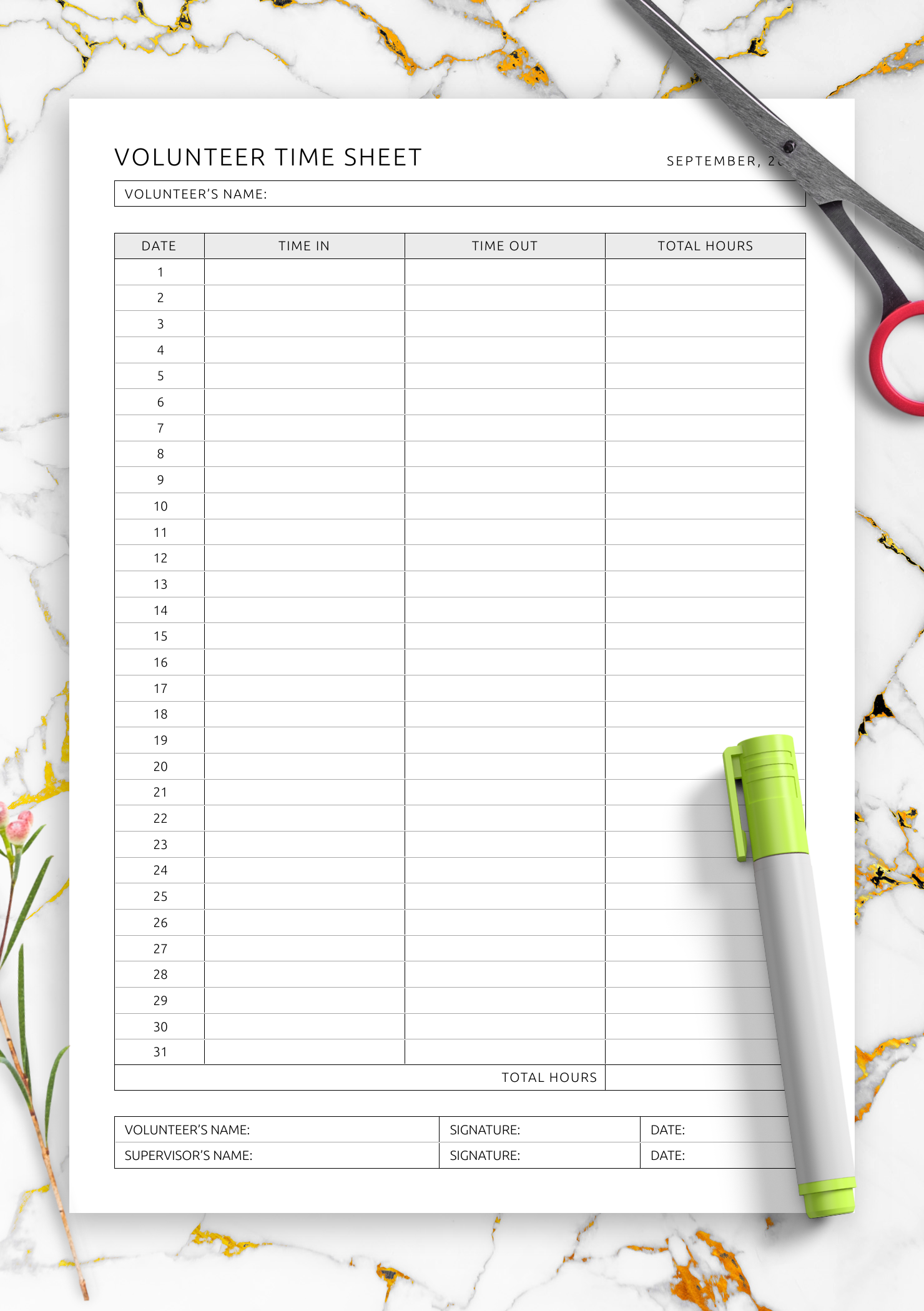Volunteer timesheets are an essential tool for organizations that rely on the support of volunteers to carry out their mission. Keeping accurate records of volunteer hours is not only important for tracking the contributions of volunteers, but it is also often required for reporting purposes to funders and other stakeholders. In this article, we will explore the purpose of volunteer timesheets, why they are important, how to effectively track volunteer hours, and provide tips for successful implementation.
What is a Volunteer Timesheet?
A volunteer timesheet is a document used to record the hours that volunteers have contributed to an organization. It typically includes fields for volunteers to input their name, the date and time they started and ended their volunteer shift, the tasks they performed, and any notes or comments they may have. Volunteer timesheets can be physical paper forms or digital templates, depending on the preferences of the organization.
The Purpose of Volunteer Timesheets

Image Source: smartsheet.com
The main purpose of volunteer timesheets is to accurately track the time and effort that volunteers dedicate to an organization. This information is valuable for several reasons:
1. Reporting: Many organizations are required to report on the number of volunteer hours contributed each year for funding and grant purposes. Volunteer timesheets provide a reliable way to collect this data.

Image Source: etsystatic.com
2. Recognition: Tracking volunteer hours allows organizations to recognize and appreciate the contributions of their volunteers. This can help boost morale and encourage continued participation.
3. Evaluation: By keeping detailed records of volunteer hours, organizations can evaluate the impact of their volunteer program and make strategic decisions for improvement.
Why Volunteer Timesheets are Important

Image Source: pdffiller.com
Accurate record-keeping of volunteer hours is crucial for both the organization and the volunteers themselves. Here are some reasons why volunteer timesheets are important:
1. Compliance: Some funders and grant providers require organizations to demonstrate the number of volunteer hours worked as part of their reporting requirements. Failure to provide this information can result in funding being withheld.

Image Source: templatelab.com
2. Transparency: Keeping track of volunteer hours ensures transparency and accountability within the organization. Volunteers can feel confident that their contributions are being accurately documented.
3. Impact Measurement: Knowing the exact number of volunteer hours can help organizations measure the impact of their volunteer program and make data-driven decisions for improvement.
How to Track Volunteer Hours

Image Source: onplanners.com
Tracking volunteer hours effectively requires a systematic approach. Here are some steps to follow:
1. Create a Standardized Timesheet: Develop a standardized timesheet template that includes all the necessary fields for volunteers to fill out.

Image Source: templatelab.com
2. Communicate Expectations: Clearly communicate to volunteers how to accurately track their hours and submit their timesheets. Provide training if needed.
3. Review and Approve Timesheets: Designate a staff member to review and approve volunteer timesheets regularly to ensure accuracy.

Image Source: onplanners.com
4. Use Technology: Consider using volunteer management software or apps to streamline the timesheet tracking process and reduce manual data entry.
5. Provide Feedback: Offer feedback to volunteers on their hours logged and recognize their efforts to keep them motivated.
Tips for Successful Volunteer Timesheet Management

Image Source: pdffiller.com
Managing volunteer timesheets can be a challenging task, but with the right strategies in place, it can be done effectively. Here are some tips for successful volunteer timesheet management:
Set Clear Expectations: Clearly outline the expectations for volunteers regarding time tracking and submission of timesheets.
Train Volunteers: Provide training sessions or materials to educate volunteers on how to accurately fill out their timesheets.
Automate Where Possible: Use technology to automate timesheet tracking and approval processes to save time and reduce errors.
Regularly Audit Timesheets: Conduct regular audits of timesheets to ensure accuracy and address any discrepancies promptly.
Recognize Volunteer Contributions: Take the time to recognize and appreciate the efforts of volunteers who consistently log their hours accurately.
Solicit Feedback: Ask volunteers for feedback on the timesheet process and make adjustments based on their suggestions for improvement.

Image Source: onplanners.com
In conclusion, volunteer timesheets play a vital role in tracking and recognizing the contributions of volunteers to organizations. By understanding the purpose of volunteer timesheets, why they are important, how to effectively track volunteer hours, and implementing tips for successful timesheet management, organizations can ensure accurate record-keeping and foster a positive volunteer experience.

Blank Volunteer Hours Log Templates (Excel & Word)
Image Source: templatelab.com